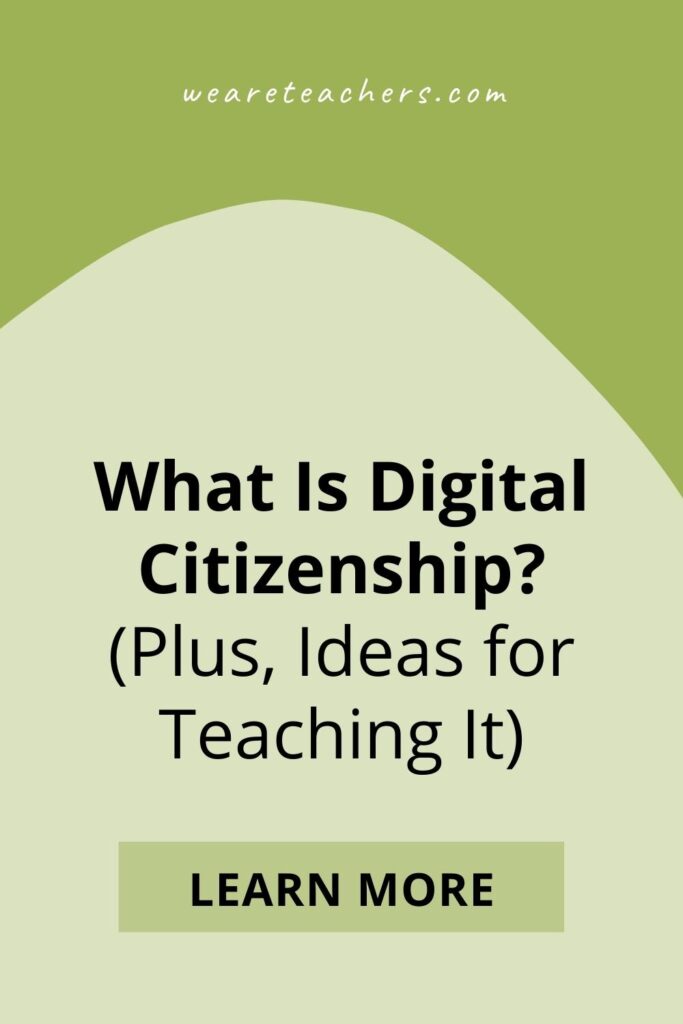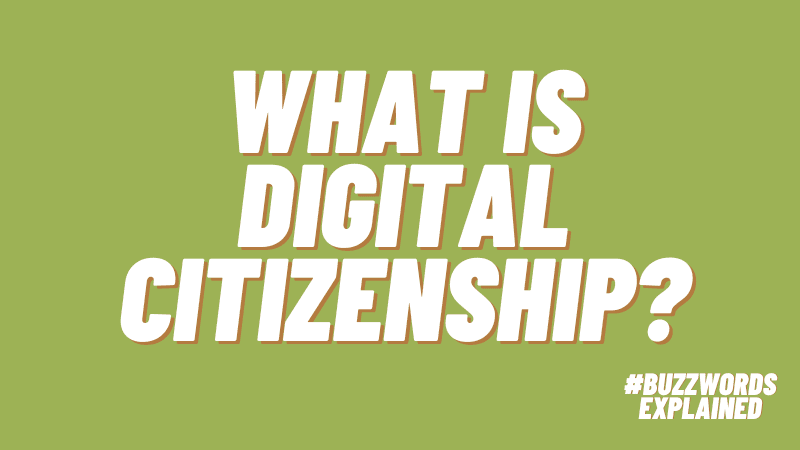The internet is integral to our lives, and it’s a rare day that we don’t spend at least some time online. Kids need the internet too, which is why it’s so important to teach them how to use it smartly and safely. So what is good digital citizenship, and how can you teach it? Here’s some information to get you started.
What is digital citizenship?
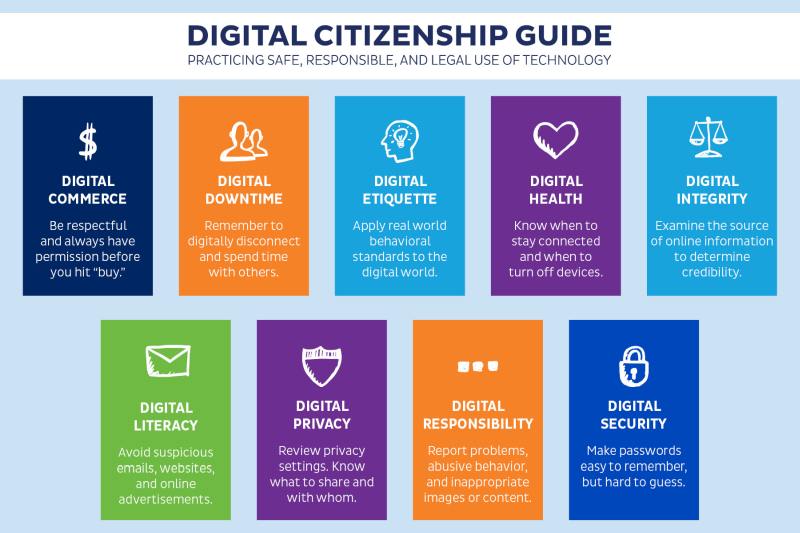
Source: SafeSitter
Being a good citizen is generally about interacting with others in a way that’s safe and respectful. In society, good citizens are those who help others, take care of their own responsibilities, and follow laws. On the internet, good digital citizens do the same. They practice smart safety routines to protect themselves, treat others with respect, and follow the laws, rules, and guidelines.
Digital Safety
Staying safe online has become an enormous issue in recent years. We must all be careful to safeguard our financial and other private information, and we must know how to recognize scams and other dangers.
A safe digital citizen:
- Understands how the internet itself generally works.
- Knows how to create strong passwords and understands how and why to keep them private.
- Can set and change the security log-in passwords, codes, thumbprint, facial recognition, etc., on their devices.
- Recognizes spam, phishing, clickbait, and catfishing attempts and knows what to do about them.
- Understands how websites gather user data (cookies) and what they may do with it.
- Realizes that once something is posted on the internet, it’s very difficult (at times impossible) to remove all traces of it permanently.
- Recognizes when they need a break from screen time and is able to take those breaks.
- Posts thoughtfully on social media, taking care not to overshare.
- Knows how to shop and bank safely online.
- Understands how to determine if a website and the information it provides is reliable.
Digital Respect
The web offers a certain degree of anonymity, and that can be helpful sometimes. But other times, people feel empowered by anonymity to bully others, steal data, or post fake or misleading information.
A respectful digital citizen:
- Does not cyberbully others.
- Follows a website’s guidelines and rules and respects the moderators.
- Knows that not everyone has equal access to the internet (Digital Divide).
- Uses social media and other websites with respect for others and their privacy.
- Does not post pictures or information about others without their permission.
- Understands the social and professional norms (and how they differ) of using email and instant messaging.
These lists are definitely not comprehensive, but they’re a good place to start when talking about digital citizenship with kids and teens.
Why do we need to teach it to students?
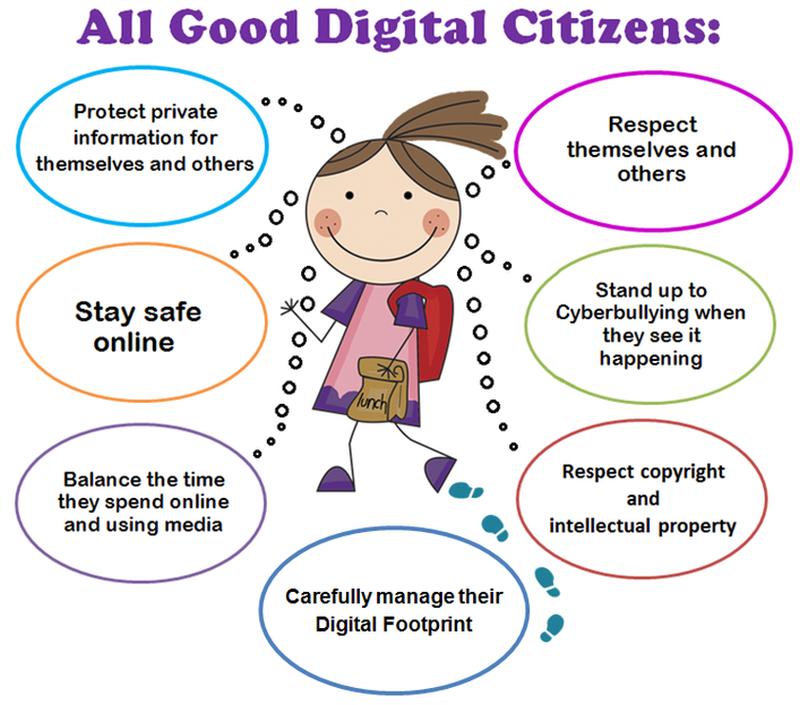
Source: Virtual Library
The world can be a risky and even downright dangerous place. When children are very young, we keep them at home and only allow them to go out with a responsible adult who can watch out for their safety. As they get older, though, we know we have to let them start taking care of themselves. So, we show them safety skills like how to cross the street. We teach them what to do if they feel endangered and how to treat other people with respect. A bit at a time, we start letting them try out these skills on their own, because we know that one day, they’ll have to do these things for themselves.
Digital citizenship is exactly the same. When kids are little, we restrict their time online and ensure they’re being safe when they do go on the web by sitting right beside them. When they start school, they’ll be required to use the web more, and they eventually will want their own smartphones and laptops. If we give them these devices but don’t teach them digital citizenship, it’s like sending a toddler out to cross a busy street alone.
Some parents react to these dangers of the web by restricting their kids’ access long into their teen years. But it makes more sense to use the internet alongside them when they’re younger, teaching them the skills they need to be safe and responsible online. Just as you helped them learn to cross the street, you can teach them how to use the web as a good citizen.
Digital Citizenship Activities
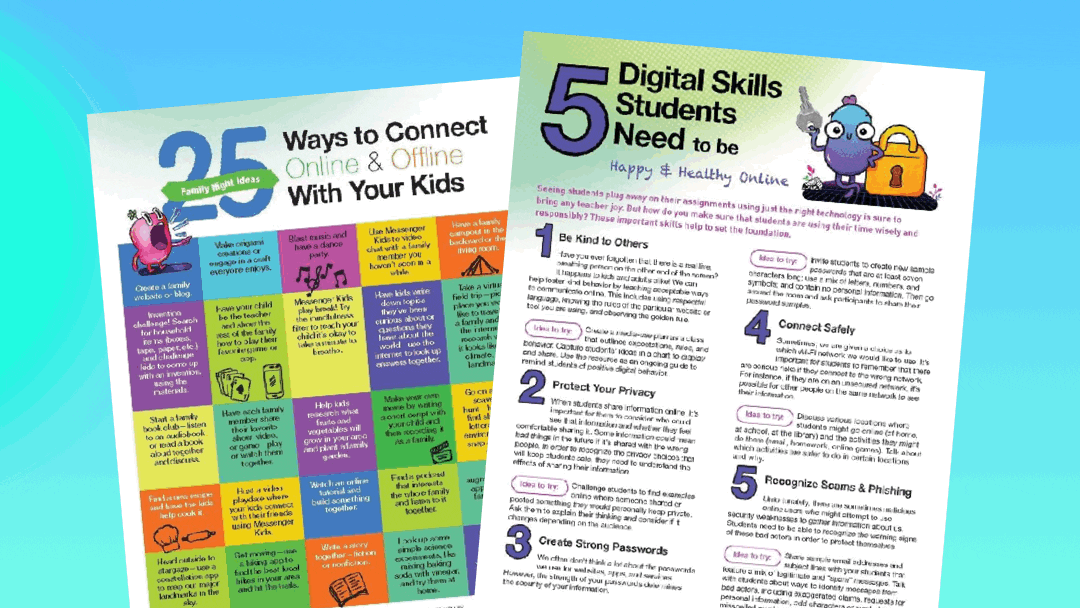
Need ideas for teaching kids to be good digital citizens? Try some of these.
Want free printable guides for the classroom and for parents?
These Free Guides for Parents & Teachers Help Teach Smart Tech Skills
Need to help kids read and analyze online articles more effectively?
Teach Kids How To Read Digital Texts Deeply
Looking for ways to help kids get practice with real-life situations?
10 Role-Play Scenarios for Tough Tech Moments
Want to help elementary students learn online respect?
These Free SEL Lessons for Grades 2-6 Help Students Learn To Be Kind Online
Love cartoon bears?
Teach Digital Literacy With Cartoon Network’s We Bare Bears
Need a simple way to get the big ideas across?
These 5 Big Ideas Are All You Need To Teach Internet Safety to Your Students
Interested in some engaging digital citizenship visuals?
20 Anchor Charts To Help Boost Kids’ Tech Skills
Want to offer some guidance to your students’ parents?
12 Questions Parents Should Ask Their Kids About Tech
Looking for tips to keep kids safe online during school breaks?
5 Ways Kids Can Nurture Healthy Digital Habits This Summer
Need to help students ensure their screen-use habits are healthy?
How Schools Are Bringing Commonsense Mindfulness to Screen Time
Worried about kids who spend too much time online?
A Teacher’s Guide to Digital Stress and Social Media Addiction
How do you teach digital citizenship in your classroom? Come share your ideas and ask for advice on the WeAreTeachers HELPLINE group on Facebook.
Plus, check out the 10 Best Tech Tools for Student Assessment.
